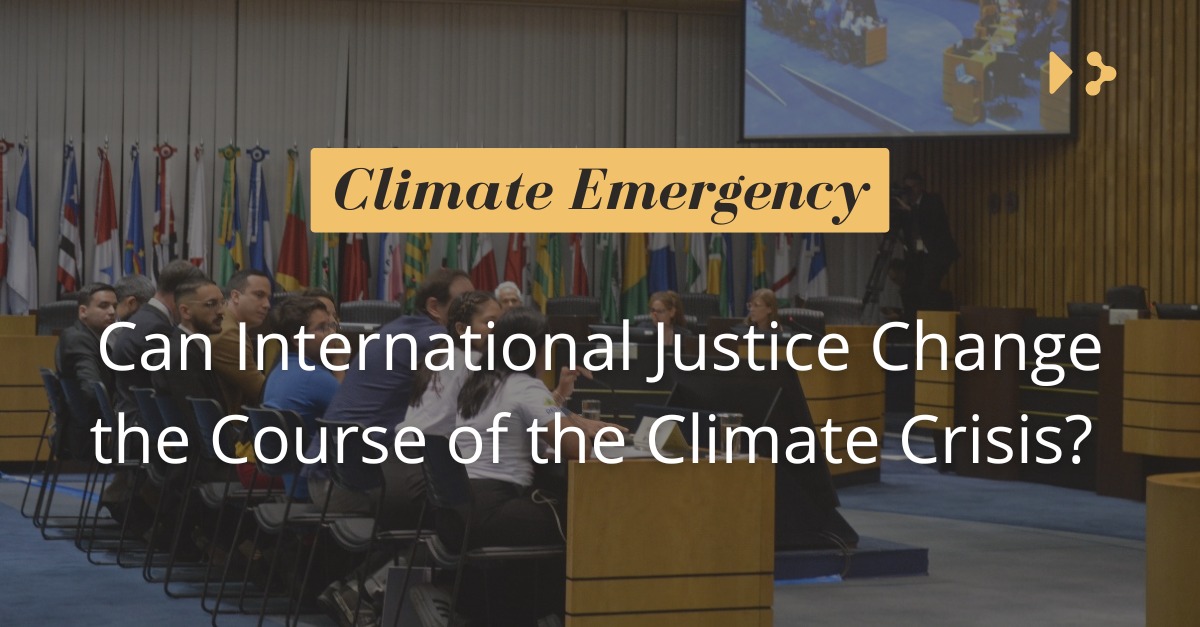






As April begins, we are facing a powerful opportunity to reflect on our current relationship with the planet and the future we are shaping. Known as Earth Month, this time of year invites us to raise awareness about increasing deforestation and rising temperatures— while also urging us to recognize that the environmental crisis is, fundamentally, a human rights crisis.
In Latin America, the effects of the climate emergency are not distant threats—they are a daily reality. Extreme droughts, floods, forest fires, biodiversity loss, pollution, and forced displacement caused by climate-related disasters and environmental degradation are becoming increasingly frequent and severe. These impacts disproportionately affect historically marginalized communities, including Indigenous peoples, rural populations, and environmental defenders. In this context, defending the environment is inseparable from defending the right to life, health, food security, access to safe drinking water, and a dignified future.
What are we facing?
Environmental Crisis: Brazil and Bolivia currently have some of the highest deforestation rates worldwide. In Brazil, fires in the Amazon have reached alarming levels, with 53,620 fire hotspots recorded between January and August 2024. In Bolivia, wildfires have burned over 24.71 million acres, destroying 60% of forested areas and impacting 38% of Indigenous territories.
Economic Impact: Latin America and the Caribbean lose approximately $58 billion annually in infrastructure due to natural disasters, many of which are intensified by climate change. Despite being the second most disaster-prone region in the world, the region invests less than 2% of its budget in disaster prevention and climate risk management.
Forced Displacement: Floods, droughts, hurricanes and rising sea levels are exposing entire communities to forced displacement in countries such as Mexico, Guatemala, Honduras, Nicaragua and Panama. In Mexico, for example, 51 families from El Bosque, Tabasco, were the first to be relocated due to climate impacts. It is estimated that by 2050, around 17 million people in Latin America will be forced to migrate as a result of climate change.
In this scenario, international legal tools become increasingly relevant. One such tool is the Advisory Opinion, a legal interpretation issued by an international court—in this case, the Inter-American Court of Human Rights. An Advisory Opinion helps clarify states’ obligations under international law, guiding public policy, judicial decisions, and regional cooperation. In the past, Advisory Opinions from the Court have strengthened protections for migrants, Indigenous peoples, children, and other vulnerable groups. Now, the Court has a historic opportunity to do the same for climate justice.
In 2022, Chile and Colombia, with the support of CEJIL and other civil society organizations, submitted a request to the Inter-American Court of Human Rights for an Advisory Opinion on the climate emergency. The goal is to clarify the scope of state obligations under international human rights law to address climate change and protect the rights of those most affected by its impacts. A decision from the Court is expected soon which could mark a turning point for the region, helping to build a robust legal framework to ensure accountability, strengthen state responsibilities, and protect communities facing climate-related environmental harm.
At CEJIL, we believe climate justice is not only possible—it is necessary. That is why we have supported this process from the beginning: amplifying the voices of those defending their territories, promoting international standards, and demanding state action that responds to the urgency of this historic moment.
Learn more about the hearings before the Inter-American Court of Human Rights
Help us continue this critical and urgent work with a donation!
DONATE NOW